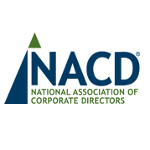Akerman LLP, a top 100 U.S. law firm, announced the expansion of its Corporate Practice Group with New York partners Lorenzo Borgogni and Jack Habert. Joining from Proskauer Rose and Willkie Farr & Gallagher, respectively, they enhance Akerman’s core strengths in complex M&A and capital markets transactions.
“Growing client needs in New York and other key markets are driving the expansion of our practice across the United States,” said Mary Carroll, Corporate Practice Group Chair. “Lorenzo and Jack are highly accomplished lawyers who have been involved in a variety of high profile domestic and international transactions. Their combined backgrounds and cross border experience support the work of our clients across diverse markets.”
In addition to Borgogni and Habert, Akerman’s Corporate Practice Group recently welcomed partner Mason “Max” Drake, co-resident in Chicago and New York, and partner Paul Quinn, co-resident in Chicago and Fort Lauderdale. Drake joined from Greenberg Traurig LLP, Quinn from Paul Hastings LLP.
Lorenzo Borgogni
Borgogni represents public and private companies in domestic and cross-border mergers and acquisitions, with a focus on Italian buyers. He has structured, negotiated and completed more than $40 billion worth of M&A transactions for deal principals, including funds and strategic buyers and financial advisors. His experience includes cash and stock-for-stock mergers, tender offers, stock and asset purchases, leveraged/management buyouts, spin-offs, going-private transactions, and joint ventures and divestitures across multiple sectors, including financial services and healthcare.
He also advises clients in connection with takeover defense initiatives and corporate governance matters, including proxy fights, consent solicitations and activist matters. In addition, Borgogni represents domestic and foreign issuers in connection with offerings of debt and equity securities.
Jack Habert
Habert concentrates his practice on negotiating and documenting structured finance and complex derivatives transactions and the regulatory analysis of securities, commodities and insolvency issues relating to such transactions. He advises major financial institutions, investment advisers, mutual funds, hedge funds and other corporate entities as either providers or end users of such financing and derivatives transactions.
From September 2010 through January 2012, Habert served as an attorney fellow at the SEC’s Division of Trading and Markets. In this role, he advised and assisted the agency with drafting rules that implemented various provisions of Dodd-Frank, including joint rules with the Commodity Futures Trading Commission on the definitions of swap and security-based swaps, swap and security-based swap dealers, and major swap and security-based swap participants, as well as SEC rules about business conduct standards, new trading platforms, clearing and reporting security-based swaps and conflicts of interest in asset-backed securities.

 Exari, a provider of cloud-based contract lifecycle management solutions, has announced the release of its
Exari, a provider of cloud-based contract lifecycle management solutions, has announced the release of its  The National Association of Corporate Directors (
The National Association of Corporate Directors (
 One in three U.S. board members and executives are “very concerned” that the climate of uncertainty and volatility may pose a significant threat to their corporate strategy, and more than three in four worry that management tends to use outdated assumptions in setting strategy,
One in three U.S. board members and executives are “very concerned” that the climate of uncertainty and volatility may pose a significant threat to their corporate strategy, and more than three in four worry that management tends to use outdated assumptions in setting strategy,  General counsel and their legal teams play a unique and important role in the conversation regarding Diversity & Inclusion in the legal profession – as the buyside of legal services, they are well-positioned to drive and influence the quality of legal services they receive. They are also currently moving more legal work in-house and the department’s ability to ensure diversity of ideas and thought leadership within their own teams is critical.
General counsel and their legal teams play a unique and important role in the conversation regarding Diversity & Inclusion in the legal profession – as the buyside of legal services, they are well-positioned to drive and influence the quality of legal services they receive. They are also currently moving more legal work in-house and the department’s ability to ensure diversity of ideas and thought leadership within their own teams is critical. “
“ Now more than ever, corporate directors are finding themselves named in lawsuits, says Katherine Henderson, veteran insurance board advisor and partner with
Now more than ever, corporate directors are finding themselves named in lawsuits, says Katherine Henderson, veteran insurance board advisor and partner with  The argument for corporate longevity is quite simple: achieving something strategic, significant, and sustainable almost always takes time, writes Wendell P. Weeks, chief executive officer of Corning, in an article posted by
The argument for corporate longevity is quite simple: achieving something strategic, significant, and sustainable almost always takes time, writes Wendell P. Weeks, chief executive officer of Corning, in an article posted by  Ellis is former general counsel of global real estate conglomerate Reading International Inc. Prior to Reading, Ellis was a real estate partner at Sidley Austin, and he began his career at Morgan, Lewis and Bockius in Los Angeles.
Ellis is former general counsel of global real estate conglomerate Reading International Inc. Prior to Reading, Ellis was a real estate partner at Sidley Austin, and he began his career at Morgan, Lewis and Bockius in Los Angeles. While the feds have certainly put hurdles in place to prevent abuse, outsourcing IT in a highly regulated industry like banking may very well lead to higher standards and quality outcomes, writes
While the feds have certainly put hurdles in place to prevent abuse, outsourcing IT in a highly regulated industry like banking may very well lead to higher standards and quality outcomes, writes  The National Association of Corporate Directors (NACD) recently released
The National Association of Corporate Directors (NACD) recently released  Volkswagen has been given until March 24 to present an acceptable fix for bringing nearly 600,000 diesel cars into compliance with clean air laws, reports
Volkswagen has been given until March 24 to present an acceptable fix for bringing nearly 600,000 diesel cars into compliance with clean air laws, reports